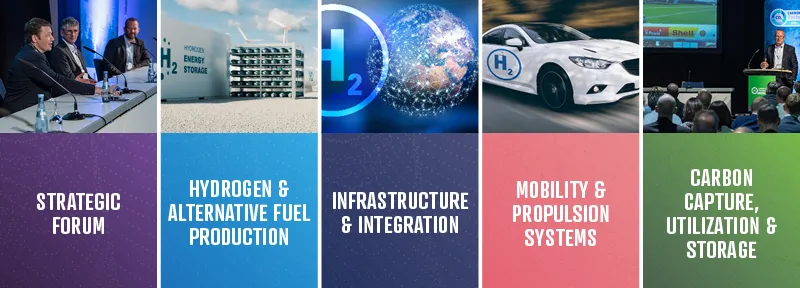Exploring the Potential: The Rise of Hydrogen Generators in the UK
)
Hydrogen energy, once a mere concept in the minds of forward-thinking scientists, is now a reality that's making waves across the globe. Spearheading this revolution in sustainable energy is a technology that is simple yet powerful: hydrogen generators. In the United Kingdom, a nation known for its pioneering stance on renewable energy, interest in hydrogen generators has been growing at a remarkable pace. But what's driving this surge in interest?
The answer lies in a concerted shift towards cleaner, greener energy alternatives. Climate change and the urgent need for more sustainable practices have created a fertile environment for the growth and adoption of technologies like hydrogen generators. As the world grapples with the increasing impact of climate change, there's an ever-increasing urgency to find energy solutions that not only meet our needs but also help in curbing harmful emissions. In this context, hydrogen generators offer a beacon of hope.
Furthermore, it's not just about the environmental benefits. The prospect of a more energy-secure future is an equally compelling reason behind the rise of hydrogen generators. As a flexible and efficient source of energy, hydrogen generators can play a crucial role in bolstering energy security, reducing reliance on imported fossil fuels, and smoothing out the volatility often associated with other renewable sources.
In this blog post, we delve into this exciting trend, exploring the rise and potential of hydrogen generators in the UK, and how these powerful devices could shape the future of the country's energy landscape.
What Are Hydrogen Generators?
Hydrogen generators are not just another piece of machinery. They represent a step forward in our ongoing journey towards sustainable living. At their core, hydrogen generators are devices designed to produce hydrogen gas. The process that makes this possible is known as electrolysis.
At a fundamental level, water is composed of two hydrogen atoms and one oxygen atom. It's this simple yet vital compound that hydrogen generators use as a starting point. The generators take in water and apply electrical energy to it within an electrolysis cell. The electrical energy breaks the water molecules into their components: oxygen and hydrogen gases.
This process of electrolysis is as fascinating as it is important. When you apply an electrical current to water in the electrolysis cell, you're effectively separating the hydrogen and oxygen atoms. This process leaves you with hydrogen gas, a valuable and environmentally friendly fuel source.
The principle behind hydrogen generators is straightforward, but its implications are far-reaching. The hydrogen gas produced can be used as an energy source in a wide array of applications. From powering industrial processes to fueling vehicles, and even generating electricity for homes, the possibilities are vast.
The beauty of hydrogen generators lies not only in their versatility but also in their environmental impact – or rather, lack thereof. Unlike conventional fossil fuel-based energy sources, which emit greenhouse gases when burnt, hydrogen generators produce energy without such detrimental environmental consequences. When hydrogen gas produced by these generators is used as a fuel, the only by-product is water, making this a clean energy source.
It's this ability to generate energy without contributing to carbon emissions that make hydrogen generators a crucial player in our fight against climate change. The interest in and demand for hydrogen generators in the UK, and indeed globally, have been buoyed by this game-changing environmental advantage. The sustainable energy revolution is well underway, and hydrogen generators are playing a key role in it.
The Growing Interest in Hydrogen Generators in the UK
Over the past few years, there has been a significant surge in interest in hydrogen generators in the UK. This hasn't been a sudden or unexpected phenomenon; instead, it can be attributed to a range of factors that have combined to create the perfect environment for the growth of this green technology.
One major catalyst for this change is the UK government's unambiguous commitment to environmental sustainability. The UK government has pledged to achieve net-zero carbon emissions by 2050, a goal that represents a revolutionary shift in the country's approach to energy generation and usage. This ambitious target has necessitated the exploration and adoption of cleaner energy alternatives, with hydrogen generators emerging as a prime solution. This technology's ability to produce energy without any harmful greenhouse gas emissions aligns perfectly with the UK's vision for a sustainable future.
Technological advancements are another crucial element driving the growth of hydrogen generators in the UK. Over the years, breakthroughs in hydrogen generator technology have made these devices more efficient, reliable, and cost-effective. These advances have helped overcome the initial scepticism that surrounded hydrogen generators, particularly concerning their operational efficiency and the costs associated with their use. With more efficient electrolysis processes and better hydrogen storage solutions, the technology has become an increasingly viable option for energy generation.
Moreover, the flexibility and versatility of hydrogen generators have also contributed to their rising popularity. These devices are not just suited for one or two niche applications – their potential use cases span across sectors and industries. From powering homes and offices to fueling vehicles and facilitating large-scale industrial processes, hydrogen generators' applicability is extensive. Their capacity to be integrated into a wide variety of settings and their ability to support different energy needs have been vital in driving their widespread adoption. The demand for hydrogen generators in the UK has been significantly amplified by this versatility.
Another noteworthy aspect is the growing public awareness about environmental issues. As people become more conscious of the impact of their choices on the environment, the demand for green technologies has skyrocketed. The clear environmental benefits of hydrogen generators make them an attractive choice for those looking to reduce their carbon footprint and contribute to a greener, more sustainable future.
In conclusion, the rising interest in hydrogen generators in the UK is a consequence of various factors – governmental commitments, technological advancements, the versatility of use, and increased environmental awareness among the public. These factors have come together to create a wave of enthusiasm and adoption for this clean, efficient, and versatile technology.
The Future Potential of Hydrogen Generators in the UK
The future of hydrogen generators in the UK appears promising. As technology continues to evolve and the push for sustainability increases, we can expect to see an even greater uptake of these green energy solutions.
As a key player in the green energy revolution, the UK government recognises the potential of hydrogen generators. The country’s Hydrogen Strategy, launched in 2022, lays out plans to use hydrogen as a key part of decarbonising industries where other methods like electrification are challenging.
Moreover, several large-scale projects are underway in the UK that utilise hydrogen generators. For instance, the "Gigastack" project, funded by the government and industry, aims to significantly cut the cost of hydrogen produced by electrolysis. This would make hydrogen generators even more competitive and accessible.
Hydrogen generators also have the potential to play a significant role in the UK's energy security. As the country moves away from fossil fuels and towards renewable energy, it must find ways to ensure a stable, reliable energy supply. Hydrogen generators can contribute to this by storing excess energy produced by renewable sources, such as wind or solar power, for use when demand exceeds supply.
Conclusion
In conclusion, hydrogen generators have seen a significant rise in popularity and adoption in the UK. They are at the forefront of the green energy revolution, promising a cleaner, more sustainable future. With the government's commitment to achieving net-zero carbon emissions by 2050, the future of hydrogen generators in the UK appears to be promising. Hydrogen generators are set to change the face of energy production and consumption in the UK, from powering homes and businesses to playing a role in energy security.
It's an exciting time for the UK's energy landscape. The shift to cleaner, greener, and more sustainable forms of energy, such as those provided by hydrogen generators, offers immense opportunities. As we continue to explore the potential of these technologies, we can look forward to a brighter, cleaner future.
Let's keep a keen eye on the development of hydrogen generators in the UK, as we watch history in the making, and participate in shaping a sustainable future for the generations to come.



)
)
)
)
)
)
)
)


)
)
)
)
)

)
)
)
)
)
)
)
)
)

)
)
)
)
)
)
)
)

)
)
)
)

)
)

)
)
)
)
)
)
)
)

)
)
)
)
)

)
)

)
)
)
)
)
)
)
)


)
)

